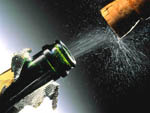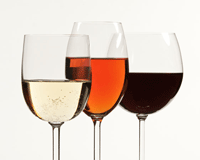 The off-licence was once a familiar sight on the UK high street. And soon, after a decade in the doldrums, it could be again.
The off-licence was once a familiar sight on the UK high street. And soon, after a decade in the doldrums, it could be again.
Back in the 1990s and 2000s there were nearly 10,000 high‑street booze shops. Chains – Unwins, Oddbins, Threshers, Bottoms Up and others – thronged with suits returning from work, students out to impress and the occasional chancellor of the exchequer.
One operator alone, First Quench, owned and ran more than 1,200 stores, with chains including Threshers, Wine Rack, Bottoms Up and Victoria Wine.
However, unable to compete with the buying power and low costs of the grocer giants, and unable to weather the worst recession since the 1930s, the offies began to disappear, blinking out like the bubbles in a Sainsbury’s own-brand Cava. Then, in 2009, First Quench went bust. Its mighty empire was broken up, sold on and then sold off – and then disappeared. The fizz seemed to have fizzled out altogether.
Now there are now just 5,000 left. Of those, more than 4,000 are independently owned and run – and most of them are actually convenience stores. For the past five years the prognosis for this sclerotic patient has been the same – terminal decline.
This is the conclusion of recent research by IBISWorld. It states that the industry is “declining”, its contribution to GDP shrinking at an estimated 2.7% annually. During 2014-15 off-licences are expected to generate £2.8bn of income; but with high costs, rising taxes and increased competition, profits are expected to be just £117m.
When looked at as a proportion of the £39bn alcohol industry as a whole, the off-licence accounts for less than 7% of sales. The share controlled by supermarkets is 80%.
But there is still a little sparkle left in the dregs. Three operators in particular are attempting to turn the sector around, relying on a compelling cocktail of convenience and expertise.
One is Majestic Wines, which has its origins in 1980 and has managed to keep its warehouse format profitable. According to analysts Nielsen, it now accounts for 4.1% of wine sales and has even managed to push its share of the market up by 0.1% by taking customers from supermarkets.
In May Majestic announced pretax profits of £23.8m on sales of £278.2m, up from £23.7m in 2013 – and despite a slow Christmas trading period. And, although it predicts sluggish income growth over the next few years, it still intends to expand, with plans to open as many as 330 stores in the UK. Chief executive Steve Lewis has said that the priority for next year will be “to ensure that we have the right infrastructure to maximise on our long-term opportunities for future growth”.
What has helped Majestic is its comparatively low overheads. Most off‑licences need to be on the high street, and, as a result, pay high-street rents. Across the sector this cost is glugging down on average 4.6% of revenues. Majestic’s 206 warehouses are generally located on cheaper industrial estates and in converted petrol stations, making them far less costly.
The other success story is Conviviality Retail, which owns the Bargain Booze and Wine Rack brands and operates as an owned-property franchise, similar to Domino’s Pizza.
In July it reported a mighty 31.5% increase in profits as it posted its first annual results as a listed company.
The rise might seem impressive, but profits are still only £9.3m from sales of £355.7m, and sales were down by 4.3%. In terms of profitability, Conviviality is actually underperforming the rest of this underperforming sector.
But there is a reason for that. Conviviality, which is already the single largest off-licence operator in the UK, is all about expansion. In addition to its 427 Bargain Booze stores, two years ago it bought Wine Rack’s 22 stores for £1.7m. This year it has bought 26 Rhythm & Booze stores in the North of England for another £1.7m.
It has also launched a new concept to take on Majestic – a 3,000 sq ft store called BB’s Warehouse. The new brand, which is “bold, fun and democratic”, according to chief executive Diana Hunter, allows shoppers to buy single bottles, or save money by multi-buying.
The first was launched in Wakefield in July. It will be followed by a second before Christmas, and Hunter says she is “on the hunt for more sites this year”.
Others are also attempting a comeback. Oddbins, which went into administration in 2011, has been revived and is looking to expand (see panel below).
We may never see the likes of First Quench again and the off-licences may never be more than niche players. But the niche is looking stronger than ever.
Oddbins: set to grow
Once Oddbins was a much-loved and familiar sight on the high street. But in 2011 it collapsed into administration as the entire off-licence sector slipped into decline. Now it is back. And it has big plans.
Oddbins was founded in 1963 by eccentric entrepreneur Ahmed Pochee, who envisaged it as a place to buy great wine without pretensions. Once its classy-but-cheap range and informal style – typified by its Ralph Steadman penned logos and advertising – made it a market leader, growing to more than 300 stores in three countries.
Then, in 2011, it fell victim to the irresistible rise of the supermarkets and the worsening economic climate, and fell into administration.
But a funny thing happened. Instead of being bought by asset-strippers or absorbed by a franchise, such as Bargain Booze, Oddbins’ bin end of 37 stores was bought by Raj Chatha of European Food Brokers. The move was a promising sign, as Chatha had already rescued 12 branches of Unwins and 100 Wine Cellars. But he went further. Oddbins would not just survive, he announced. It would grow.
In November last year managing director Ayo Akintola stunned those who had written off both Oddbins and off-licences in general by announcing plans to open 100 new Oddbins stores by early 2015. Some dismissed this as a pipe-dream, but it has appointed agents to seek suitable sites and in June it bought 20 Nicholas stores from Spirited Wines to rebottle under the Oddbins label.
It is also planning to take a leaf out of Conviviality’s playbook by launching a franchise model to woo existing independent wine sellers and expand the Oddbins brand to 300 stores.
Off-licences: key facts
Turnover: £2.8bn
Annual growth 2010-15: –3.4%
Predicted annual growth 2015-20: –1%
Industry life-cycle stage: Decline
Profits: £119.6m
Wages: £203m
Rent: £120m
Number of operators: 4,400
Number of establishments: 5,040
Figures from IBISWorld











